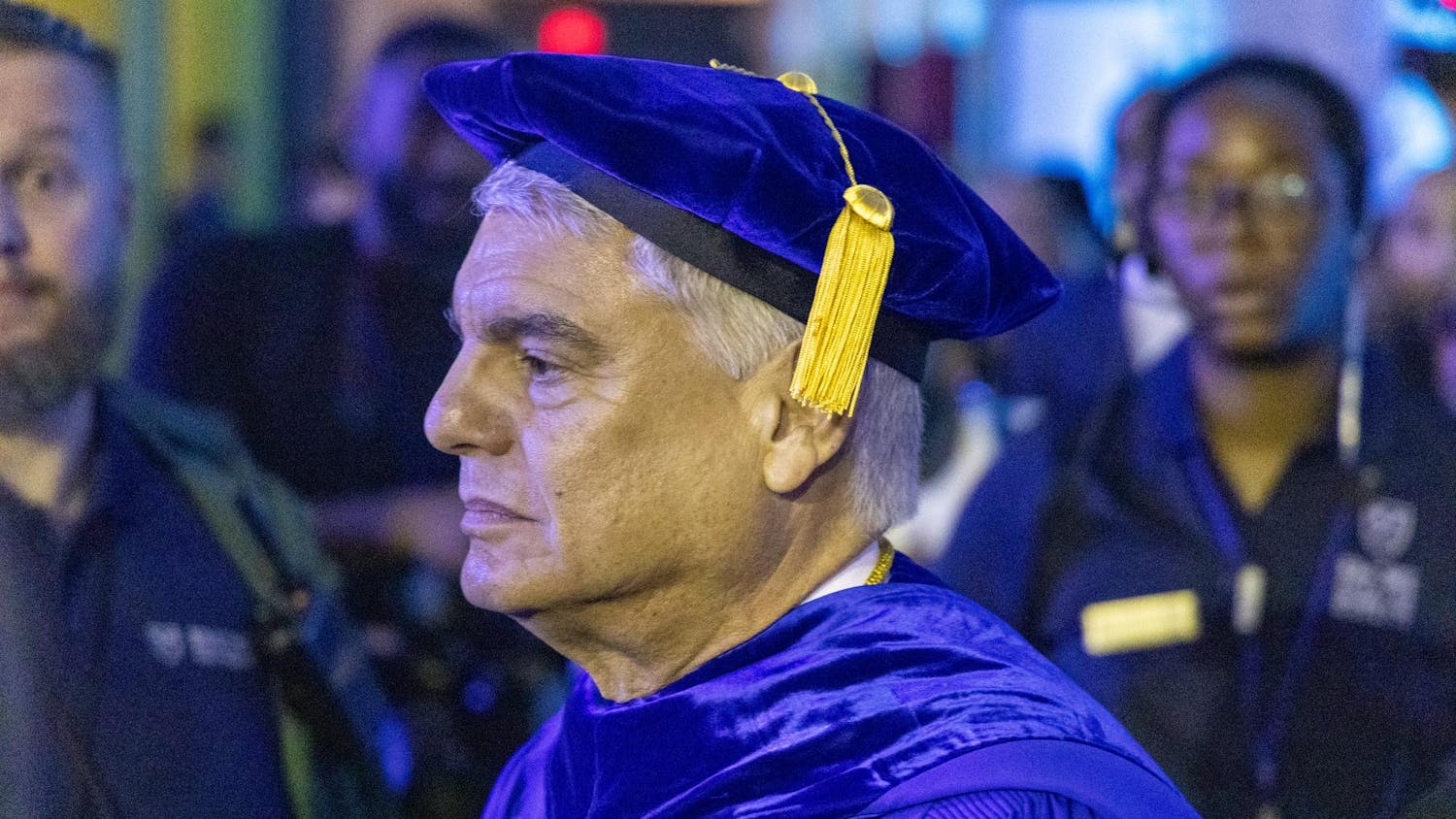France-Atlanta, a series of events sponsored by the Consulate General of France in Atlanta and the Georgia Institute of Technology, hosted a humanitarian forum discussing logistics and supply chain management in international emergencies on Friday, Nov. 9 at the Rollins School of Public Health. The series focuses on innovation and French-American cooperation in science, business, culture and humanitarianism.
The first of two panels featured Nadine Cornier of the United Nations Population Fund, Consul General of Belgium in Atlanta William De Baets, and Director of MedSurplus Alliance Lori Warrens.
The panelists discussed logistics in the case of emergencies, emphasizing the difficulties and complexities of supplying medical resources such as pharmaceuticals during humanitarian crises.
"It is about the right supplies at the right time," Cornier stated. "It can't work if you don't have supplies."
Cornier discussed the current strategy for preparedness in humanitarian crises, which entails the prepositioning of supplies. She said that medical resources are currently stored in Turkey and, whenever possible, sent to Syria to address the ongoing humanitarian crisis. Beyond that, the United Nations, in conjunction with nongovernmental organizations (NGOs), operates a massive warehouse in Dubai stocked with supplies for similar purposes in various African and Asian countries.
De Baets chimed in on the importance of intergovernmental cooperation in disaster management.
"The role of foreign affairs cannot be underestimated,” De Baets said. “Quite often, people think that delivering humanitarian aid is like ordering something on Amazon. … It doesn't work like that. You need the authorization to bring in supplies in the affected country."
Panel moderator Lara Martin, the manager of education and programs at the Center for Humanitarian Emergencies at Emory asked the panelists how students and civilians could best become involved in emergency humanitarianism.
"Listen first to the people on the field,” Da Baets said. "They know what they need. [Not asking] is the biggest mistake we make."
Cornier encouraged students to receive necessary training for deployment during humanitarian emergencies. Human resources, she said, are always crucial to relief efforts.
The second panel, composed of Joe Ruiz, director of the Humanitarian Relief and Resilience Program and Communications at The UPS Foundation, and Georgia Department of Public Health Medical Countermeasures Program Manager Leah Hoffacker, focused on logistics in both global and local emergencies. Ruiz and Hoffacker stressed the importance of public-private partnerships in response to emergencies.
Ruiz cited the Ebola crisis and subsequent disaster relief in West Africa as an example of successful collaboration between the government, NGOs, small regional businesses and corporations.
"Without private partnerships, the [humanitarian] mission is impossible," Hoffacker added.
The event was dedicated to a public health worker, Jennifer Schlecht, who was murdered by her partner on Wednesday. Schlecht was a New York-based public health specialist who worked in humanitarian response and reproductive health.
Martin spoke about the impact Schlecht made on the humanitarian world and on those at the event.
"She was a tireless advocate for women and children in emergencies and women and children across the world,” Martin said, fighting tears. “She was a great friend, and she was an amazing humanitarian. I know we are grateful and honored to have worked with her. So we dedicate this forum to her."
France-Atlanta will continue to host events discussing humanitarianism, public health and the relationship between the U.S. and France in these domains.





